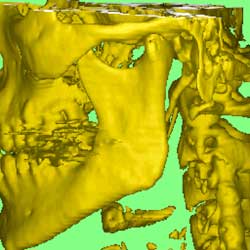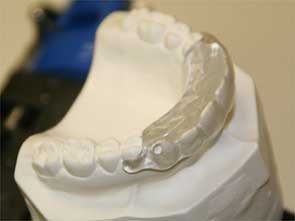TMJ Treatment
We treat and evaluate TMJ issues every day.
TMJ pain usually occurs because of unbalanced activity, muscle spasm or overuse of the jaw muscles. Symptoms tend to be chronic, and treatment is aimed at eliminating the precipitating factors. The following are common symptoms: Jaw pain, bite problems, headaches, ear pain, popping sounds (crepitus) in the jaw joint, locked jaws, dizziness.
TMJ disorders are a group of complex problems of the joint. They are also referred to as myofascial pain dysfunction. The following are behaviors that can lead to TMJ disorders:
- Teeth grinding (bruxism) increases the wear on the cartilage lining of the jaw joints. You may experience jaw pain, ear pain or headaches when you wake up. Dr. March may notice telltale signs of wear and tear on your teeth.
- Malocclusion. Patients may complain that they find it difficult to find a comfortable bite. Chewing on only one side or on a few teeth can lead to or be a result of TMJ problems.
- Trauma to the jaws.
- STRESS. It is very common for people under stress to release this nervous energy by either consciously or unconsciously grinding and clenching teeth.
- Occupational/Habits. We see people who are in uncomfortable positions such as being in front of a computer for long period of time experience TMJ pain.
These issues are resolved with many treatments depending on your symptoms and the underlying causes. These treatments include Biteplane (Splint) Therapy, bite adjustments, Orthodontics and physical therapy.


Ready to improve your smile?
Schedule your dental appointment today!
